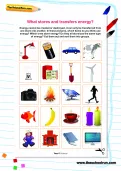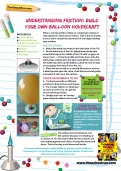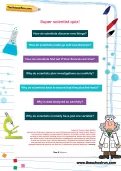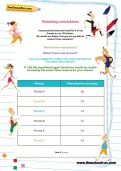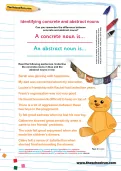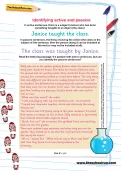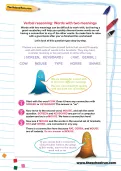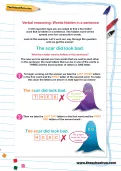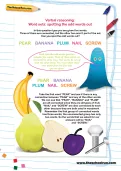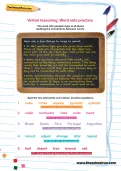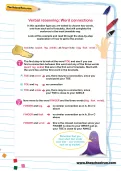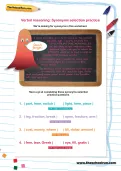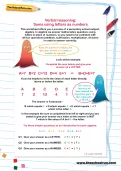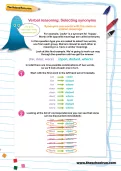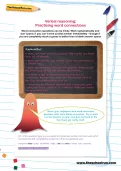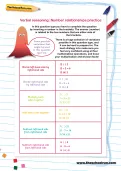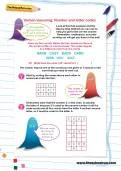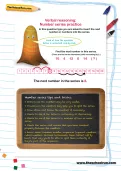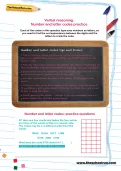A concrete noun is one that has a physical presence. An abstract noun is a concept you can’t touch, smell, hear, see or taste. Look at the following passage. Can you underline all the concrete nouns in blue and the abstract nouns in red?
or
Register to add to your saved resources
Already a subscriber? to view this content.
Read the following sentences. Underline the concrete nouns in blue and the abstract nouns in red.
or
Register to add to your saved resources
Already a subscriber? to view this content.
Read the following passage. It’s packed with active sentences, but can you identify the passive sentences?
or
Register to add to your saved resources
Already a subscriber? to view this content.
Emmanuel has just been to the circus. He has written various sentences about his time there. Can you identify the subject, verb and object in each one? Underline the subject in green, the
verb in purple and the object in orange.
or
Register to add to your saved resources
Already a subscriber? to view this content.
These sentences contain a subject, verb and object. Underline the subject in green, the verb in purple and the object in orange.
or
Register to add to your saved resources
Already a subscriber? to view this content.
See if you can turn these active sentences into passive sentences.
or
Register to add to your saved resources
Already a subscriber? to view this content.
A Year 4 English worksheet created by an experienced teacher to help your child understand active and passive voice, with examples.
or
Register to add to your saved resources
Already a subscriber? to view this content.
Choose one word from those printed below that would fit equally well with both sets of words in the brackets. They may have a similar meaning or be connected in some other way.
or
Register to add to your saved resources
Already a subscriber? to view this content.
In these questions you are asked to find a four-letter word that is hidden in a sentence. The hidden word will be spread over two consecutive words.
or
Register to add to your saved resources
Already a subscriber? to view this content.
In these questions you are given five words. Three of them are connected, but the other two aren’t part of the set. Can you spot the odd words out?
or
Register to add to your saved resources
Already a subscriber? to view this content.
These questions are all about spotting the connections between words. Try these practice questions.
or
Register to add to your saved resources
Already a subscriber? to view this content.
In this question type you are asked to choose two words, one from each set of brackets, that will complete the sentence in the most sensible way. Try these practice questions to get you thinking about word connections.
or
Register to add to your saved resources
Already a subscriber? to view this content.
We’re looking for synonyms in this worksheet. Have a go at completing these synonyms selection practice questions.
or
Register to add to your saved resources
Already a subscriber? to view this content.
In algebra we answer mathematics questions using letters in place of numbers, so you need to be confident with all four operations (addition, subtraction, multiplication, division) in order to answer correctly. Try these simple questions as an introduction to basic algebra.
or
Register to add to your saved resources
Already a subscriber? to view this content.
Synonyms are words with the same or similar meanings. Can you think of three synonyms for each of the words below? After you’ve done that, use a thesaurus (a synonyms dictionary) to add another two to your list.
or
Register to add to your saved resources
Already a subscriber? to view this content.
Word connection questions can be tricky! In these questions you are asked to choose two words, one from each set of brackets that will complete the sentence in the most sensible way.
or
Register to add to your saved resources
Already a subscriber? to view this content.
Complete the questions by inserting a number in the brackets. The answer (number) is related to the two numbers that are either side of the brackets.
or
Register to add to your saved resources
Already a subscriber? to view this content.
Here are four words. Below the four words are three of the words written in a secret code. The codes may be in a different order from the words. The answer may be one of the words you are given or it may be a new word that you need to work out.
or
Register to add to your saved resources
Already a subscriber? to view this content.
Let's put your advanced counting skills into practice! In these questions you are asked to insert the next number or numbers into the series.
or
Register to add to your saved resources
Already a subscriber? to view this content.
Each of the codes in these questions uses numbers as letters, so you need to find the correspondence between the digits and the letters to crack the code.
or
Register to add to your saved resources
Already a subscriber? to view this content.
